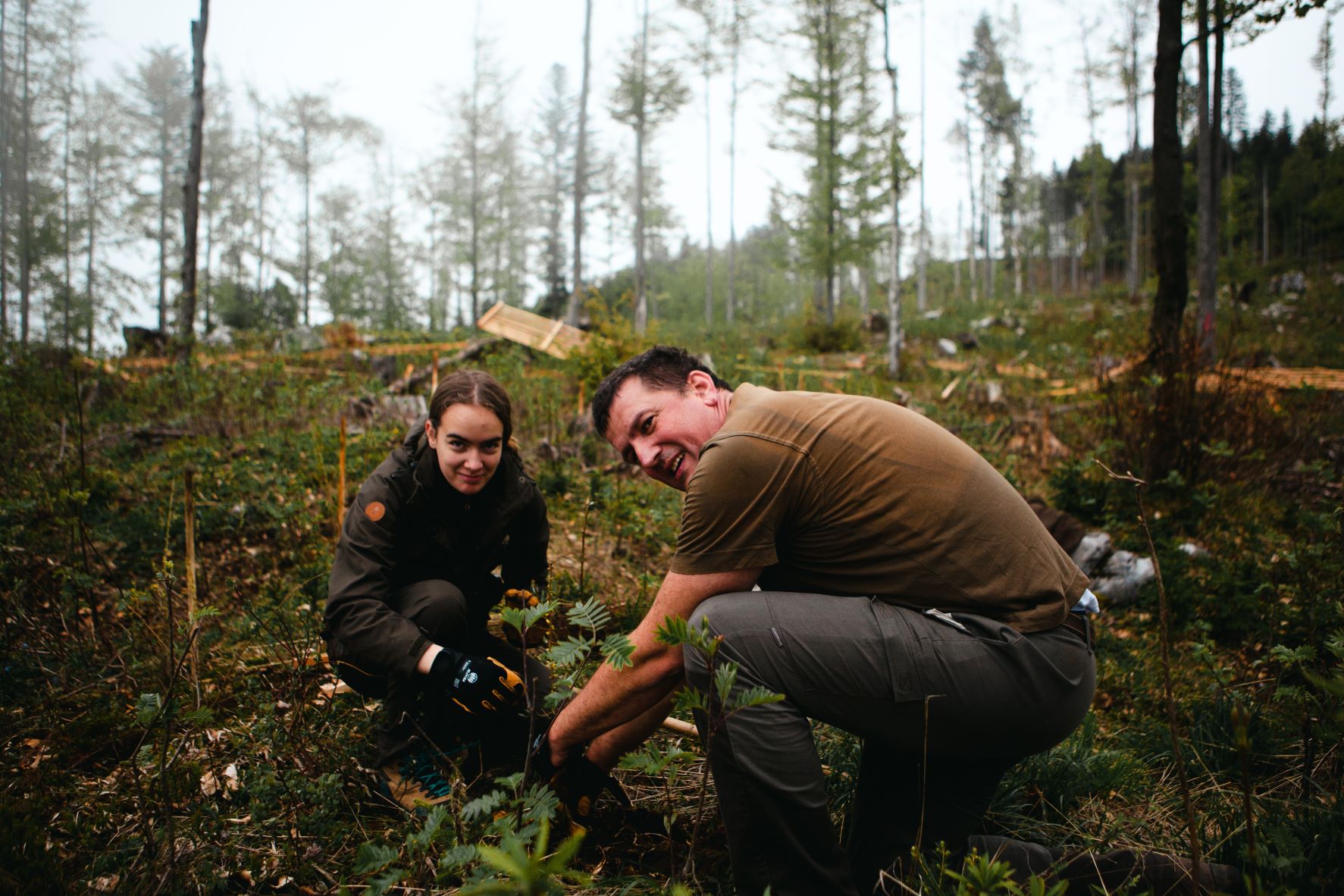
23 May – On Friday, 19 May 2023, in the framework of the JeloviZA project, the Jelovica area was reforested with the objective of restoring the damaged forest. The forests of Jelovica have been severely damaged in the past by windstorms, snowstorms and ice storms, and later by bark beetles. To successfully restore the burnt areas and ensure that the forest is diverse and resilient, 24,000 native and species-diverse seedlings of larch, mountain maple, red pine, beech and fir will be planted on a 10-hectare area by the end of the month.
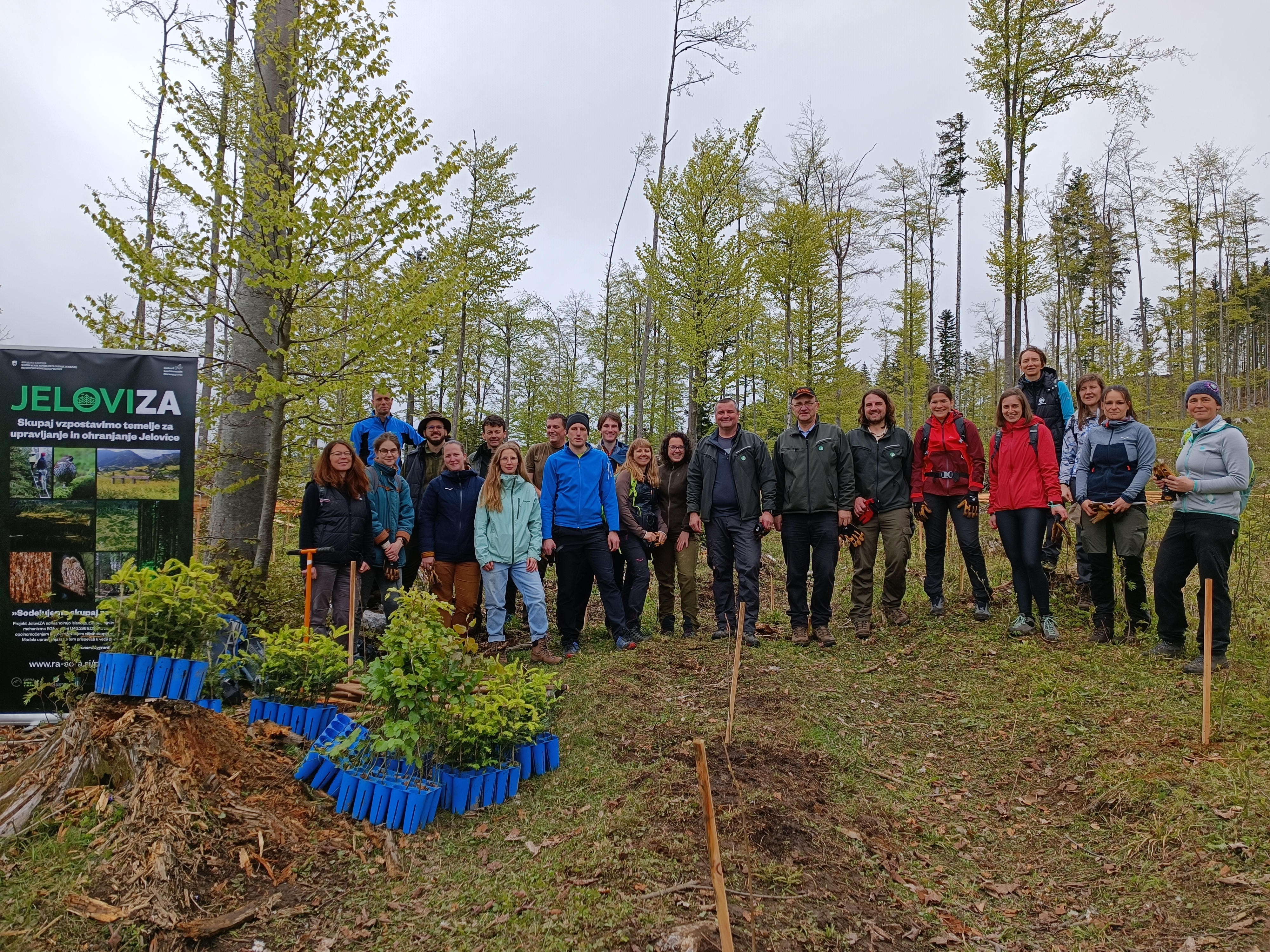
The objective of the activities, implemented in the frame of the JeloviZA project, is to increase the resilience of forests to weather events and other impacts of climate change. Gašper Kleč, Director of the Sora Development Agency, presented the objective and the main activities of the JeloviZA project. He stressed that we should prevent Jelovica from becoming the next Pokljuka; we should enhance sustainable development and establish a species-diverse forest more resilient to climate change. Mr Kleč thanked all project partners and stakeholders working together in the area.
The partners of the two-year project, CIPRA Slovenia, Institute for Nature Conservation, Slovenian Forest Service, Municipality of Železniki, CIPRA International and the Sora Development Agency are, together with the stakeholders, committed to preserving the area for future generations and to developing it in a sustainable and nature-friendly manner. The project financed the installation of counters to count traffic and the number of visitors, inventory of species such as the wild grouse, hazel grouse and the three-toed woodpecker, evaluation of ecosystem services, restoration of nesting boxes for Ural owls, and the co-design of a Management Model that will form the basis for the sustainable development of the area.
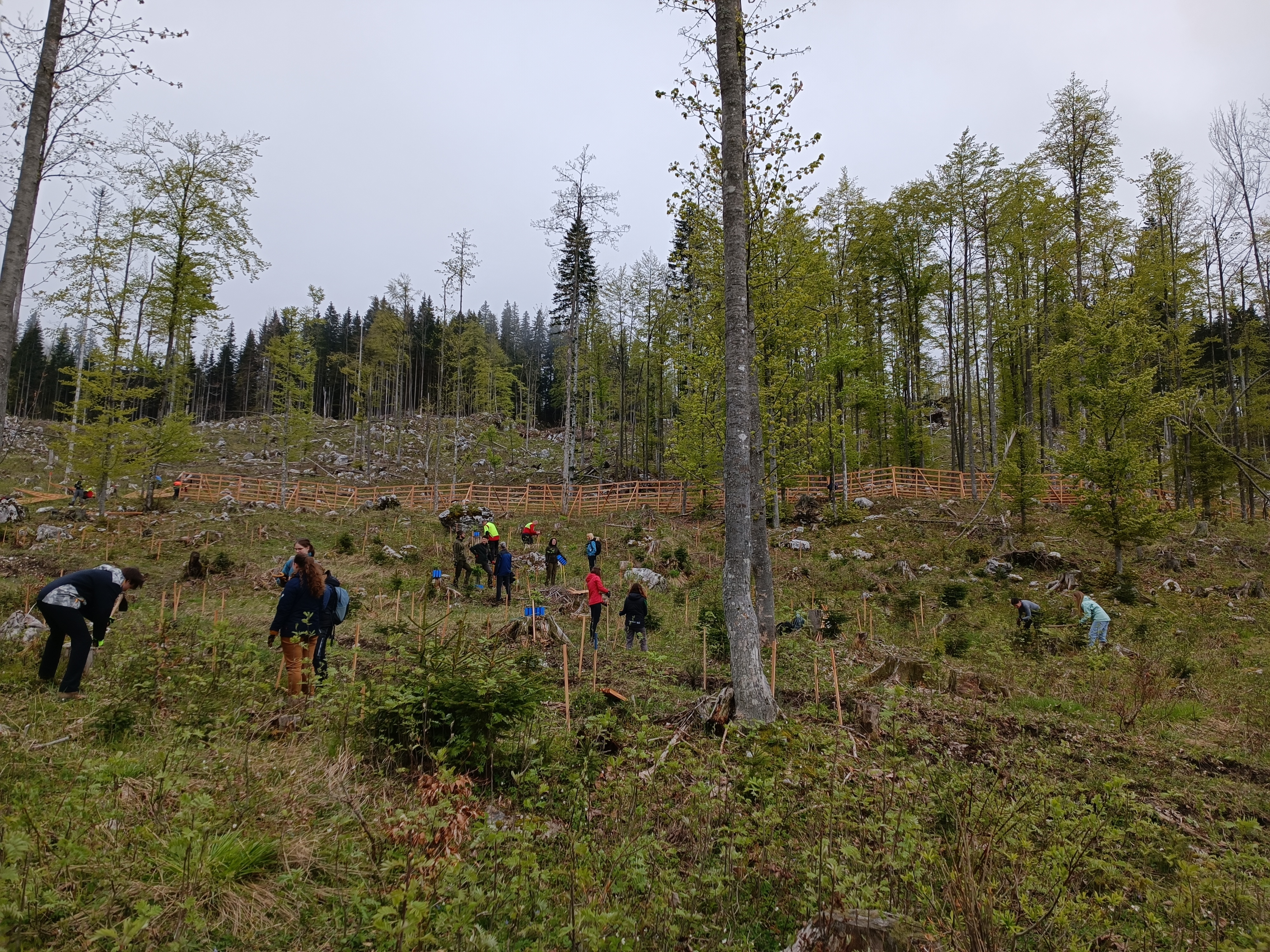
Gregor Danev, Director of the Slovenian Forest Service, who was also actively involved in the tree planting at Jelovica, stressed the importance of artificial planting and the care that the owners will take over the next four years to raise and care for the seedlings, which are key to the success of the restoration. He also welcomed new approaches, such as protecting seedlings from browsing with wooden fencing, allowing smooth passage for forest hens such as the wild grouse and hazel grouse. For many species, the wire fences used in the past are not suitable.
Dr Irena Mrak from the Slovenian Forest Service, Bled Branch Office, added that the project will also monitor the comparison of natural and artificial restoration, which will significantly contribute to guiding the future restoration of Jelovica.
Matija Benedičič, Forest Economy Bled, said that the forest is naturally regenerating well, and by planting trees, we help make this regeneration even more successful. “We are mostly planting larch and mountain maple, some red pine, and a smaller percentage of beech and fir.”
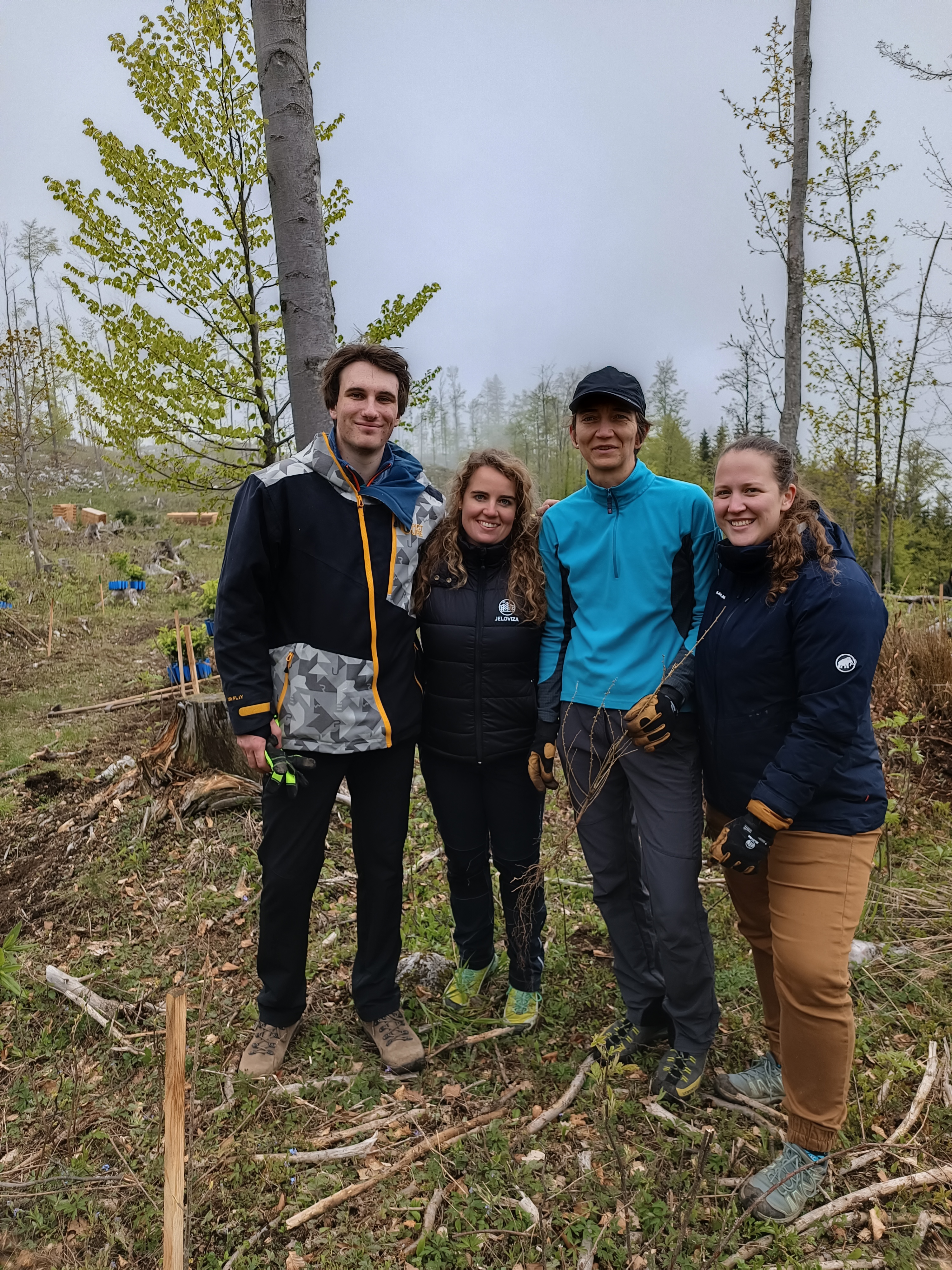
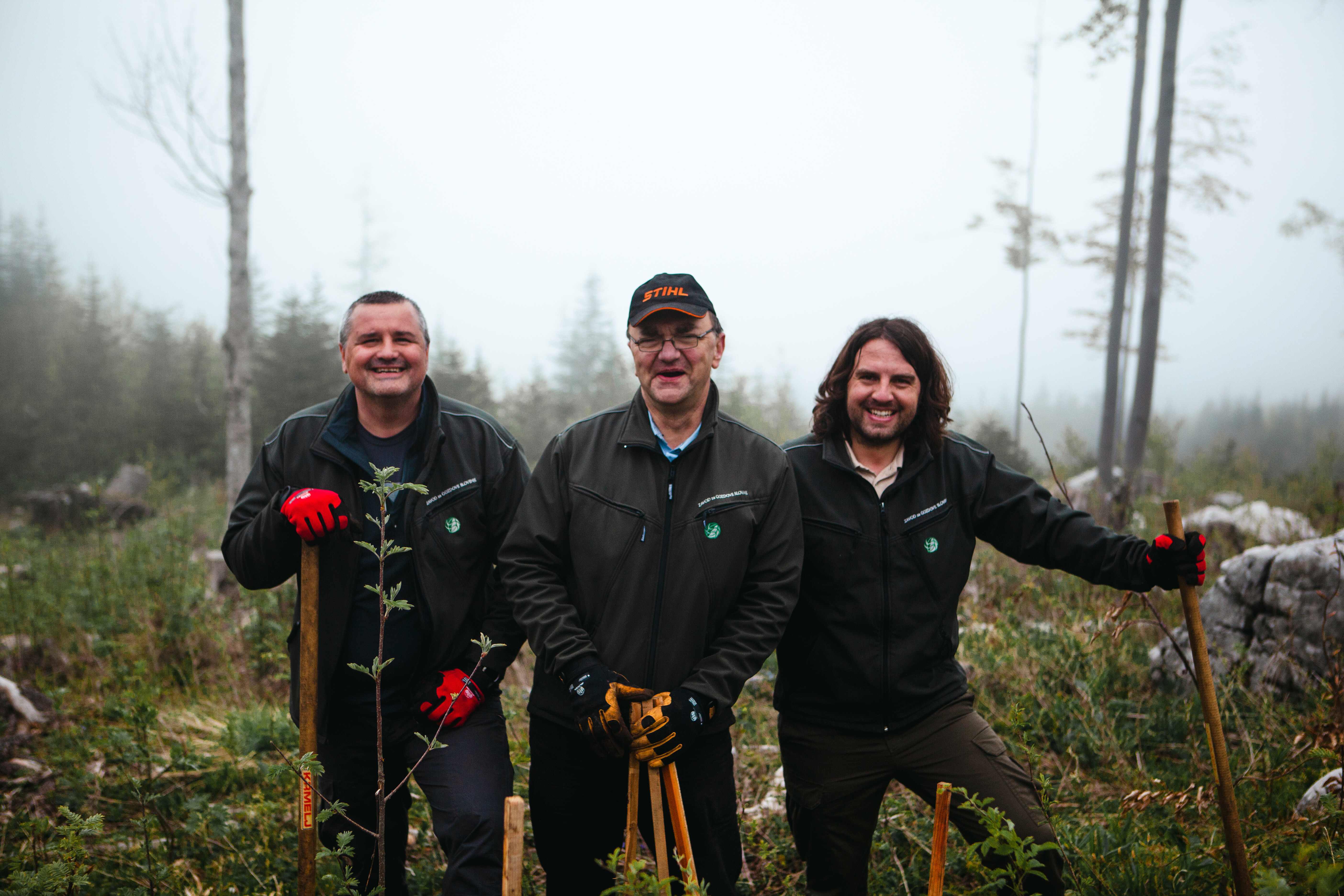
Prepared by APO, Sora Development Agency
Wath a video about tee planting at Jelovica: